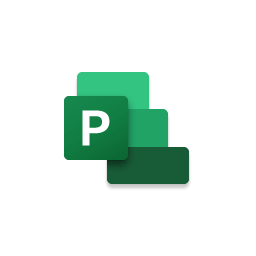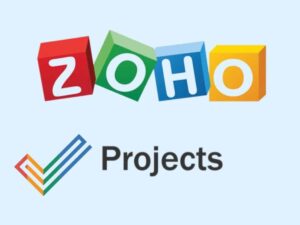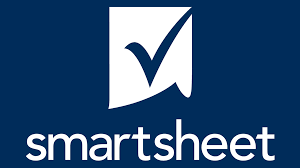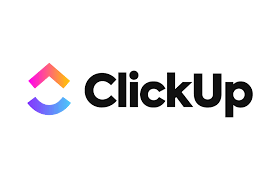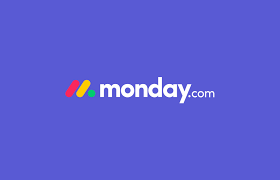Microsoft has been supplying business software for decades, and its weight of experience is hard to overcome. Wrike is one of the best of the new approaches: project management as work management. Microsoft Project offers a robust toolset, but in a battle between Microsoft vs Wrike, it’s Wrike that could be a better choice for small businesses that need flexibility and customization.
Microsoft Project is a dynamic project management software solution that has all the tools you’d expect as well as a few advanced features that are suited towards larger companies. This software is geared toward users who are experts in project management and work for a big enterprise.
Since it’s made by Microsoft, you’ll probably want to be a user of the Microsoft family. Products like Word, Excel, Dynamics, and Teams integrate seamlessly with Microsoft Project. Microsoft Project offers tools for project planning and scheduling. It also offers views for Gantt charts, grids, and boards as well as task, time, and team management tools.
- Robust tools suited for larger enterprises
- Smooth integration with other Microsoft products
- Easy time and task progress tracking
- Steep learning curve
- Limited integrations with third-party apps
- Unreliable customer support at times
Pricing
- Project Plan 1: $10/user per month
- Project Plan 3: $30/user per month
- Project Plan 5: $55/user per month
Although there are many project management solutions available, Wrike stands out for its easy to navigate UI, accurate time tracking, and specialized feature sets catered towards your specific business. Wrike can fit into any type of business because of its customizability.
From startups and entrepreneurs to remote teams and established enterprises, Wrike is used as one of the most versatile project management software. However, we recommend chatting with a sales rep from Wrike before purchasing. Wrike offers a lot of different features with sliding scale pricing and additional add-ons, so speaking with a rep ensures you get the best plan. Read the complete Wrike review to learn more about it.
- Specialized packages for services, marketing, and creative teams
- Extensive time tracking features that allow time tracking within tasks
- Offers an analytical tool which automatically generates charts
- More expensive than other PM software options
- Difficult to choose the correct plan without assistance from Wrike’s team
- Cannot add a priority to tasks
Pricing
- Professional plan: $9.80/user per month
- Business plan: $24.50/user per month
- Enterprise plan: Inquire for price
- Enterprise Pinnacle plan: Inquire for price
Microsft Project vs Wrike: Pricing & Features Comparison
The first thing you’ll notice when comparing the price of Wrike vs Microsoft Project is that one has a free plan. Wrike’s free account comes with many nice features, which include unlimited users, task management, and a couple of helpful views. However, most of the sophisticated project management features users are looking for require a paid subscription.
In those terms, the costs are actually comparable, though Microsoft Project is slightly more expensive.
Pricing
Paid plans start at $10 per member / month
Free Plan + Paid Plans start at $9.80 per member / month
Team Management
Multiple views to track team status and collaboration
View project organization with Gantt charts and task assignments
Project Delivery Management
Tools for estimating and managing workload across multiple projects
Hit every goal with Kanban board software
Risk Management
Offers issue tracking and risk management tools
Offers AI-driven assessment of project health
Reporting
Integrates reporting with other Microsoft Suite tools like Excel
Analytics tool for real-time updates and reports on projects
Finance Management
Timesheet submission features
Offers easy-to-use billing software
Collaboration and Communication
Work together on projects with Microsoft Teams
Can easily send messages across entire teams or to individual colleagues
Integration With Other Apps
Seamlessly integrates with Microsoft Suite products
400+ app integrations with leading software providers
Usability
Can access on any device
Powerful customization but has a learning curve
Support
Multiple support options and Q&A section
Multiple support options and many resources
Privacy
Uses highly encrypted cloud-service technology
Offers enterprise-grade security
Winner: Tie. The prices are actually fairly close and Wrike’s pricing structure has a number of potential add-ons, making things complicated.
Team Management Breakdown
Team management is an area where both of these options shine, though in ways that highlight their different approaches. Both offer a number of familiar project scheduling tools, including Gantt charts and the option to set up a Workload view. As a result, both enable sophisticated resource management, allowing the optimal allocation of team members’ time and resources. The two options also include time tracking.
Microsoft Project
Microsoft Project offers a project management tool for HR managers at a brick-and-mortar company, as well as others like automatic resource leveling. You can also add notes to tasks or projects.
Wrike
Wrike puts a bigger emphasis on the team collaboration aspect, with free messaging and file sharing. Wrike also has the Stream widget, which provides an update on everything that is going on.
Winner: Wrike. Your mileage may vary, depending on your needs. While Microsoft Project is great for the admin side of things, Wrike offers more tools for herding cats or your project team.
Project Delivery Management Breakdown – Microsoft Project vs Wrike
We’ve mentioned that both Wrike and Microsoft Project are PM software with time and task tracking, enabling efficient project delivery. Both platforms are candidates for the best project management software with project tracking.
Microsoft Project
Microsoft Project has tools for estimating workload, along with tools for weighing multiple projects. Additionally, there are several different versions of Microsoft Project with different options. Project Online includes a project board option for Kanban-style management of project tasks. Other versions have other tools.
Wrike
With Wrike, you can create tasks and turn them into milestones, which can be translated into attractive reports with the Analytics tool. You can also set up custom workflows without needing other software.
Winner: Wrike. While Microsoft Project has some portfolio management options, Wrike offers more native tools for shepherding projects to completion.
Methodology Suitability Breakdown
Every project manager knows the project management phases to follow, regardless of which methodology they follow. Microsoft is credited with an influence on early Agile project management. However, when it comes to Wrike vs Microsoft Project, there’s no question which is friendlier to Agile methods. Let’s discuss how Microsoft Project vs Wrike differ in terms of methodology suitability.
Microsoft Project
Microsoft Project does offer some tools for Agile methods, like the Board tool we’ve already mentioned. Additionally, you can create burndown charts fairly easily. However, Microsoft Project again leaves much of Agile to other MS software, like Teams.
Wrike
Wrike’s work OS approach to project management, on the other hand, is a bit kinder to an Agile philosophy. One of the basic views available in even the free tier is the Board, which is basically a Kanban board with tasks sorted by status.
Winner: Wrike. Microsoft Project suffers from spreading features out among several apps. There are some advantages to that, but in terms of a single piece of software, Wrike offers more.
Risk Management Breakdown – Microsoft Project vs Wrike
Risk management is the act of identifying and managing threats that can threaten your organization. Project management software can prevent errors by ensuring every aspect of the project is running according to plan.
Microsoft Project
Microsoft Project has a tailored project management tool for both issue tracking and risk management. It allows you to add issues to projects or tasks, along with notes. Additionally, with portfolio management you can compare different scenarios to identify less risky options.
Wrike
Wrike, on the other hand, doesn’t have any specific issue tracking tools. It is possible to use other tools, like Request Forms, to create an issue tracker, however. Additionally, Wrike offers an AI-driven assessment of project health.
Winner: Microsoft Project. Risk management is precisely the sort of administrative task that Microsoft Project does really well.
Reporting Breakdown
While meetings have become a byword for wasted time in many teams, effective presentations are one of the most important tools in a project manager’s toolbox. It keeps team members informed and stakeholders up-to-date. As a result, easy-to-read reports are an important aspect of project management software.
Microsoft Project
There is a range of reporting options with Microsoft Project, particularly some that we’ve already mentioned in regards to resource management like workload. Microsoft wants you to use the Office 365 package, however, which means many options are reserved for Excel, Power BI, and other software.
Wrike
For Wrike, you’ll want to head to the Analytics tool for real-time reports. It will take data from projects like the progress of tasks and workload, then turn it into charts that can be easily read. It becomes easy-to-process information and makes decisions regarding resources. Note that Analytics isn’t free, unfortunately, and is only available for Business and above plans.
Winner: Tie. Microsoft Project leaves many reporting tools for other apps, but they’re also unavailable for all but the most expensive tiers of Wrike. It ends up being a wash.
Finance Management Breakdown – Wrike vs MS Project
Money matters are a central concern to any company, of course, and project management requires close monitoring of the bottom line.
Microsoft Project
Microsoft Project enables project managers to manage costs in a number of ways, including billing and invoicing. It’s also possible to use other advanced features to predict expenses in the future, and reports will detail workload and other various aspects.
Wrike
Wrike users will find fewer tools. Many businesses have separate financial software, so it’s not unusual for the work OS style of project management software to leave those functions out. Instead, Wrike integrates with a lot of common financial software.
Winner: Microsoft Project. Microsoft simply offers more tools, though Wrike’s setup might be more convenient for some folks.
Collaboration and Communication Breakdown
Collaboration tools have become a focus of some project management software, particularly the work OS style.
Microsoft Project
As we’ve said, Microsoft users will find that most of those options may be found in other MS products, leaving them out of that trend to some extent.
Wrike
Wrike, on the other hand, is packed with tools for staying in touch with your team. You can send messages to teams, projects, or whole companies. You can also get notifications sent to your business email, or, if you use the mobile app, get notifications in real-time.
Winner: Wrike. There’s no question that Wrike has more built-in tools for collaboration.
Integration With Other Apps Breakdown
Sometimes you need more project management tools that aren’t included in base packages. Seamless access to information in other software is an important consideration, as it can really make life easier and save a lot of money. Both systems have a lot of free integrations, as well as some additional options users can add at an additional cost.
Microsoft Project
Microsoft Project is, of course, part of Microsoft Office 365. It integrates with those tools so that you can send updates of tasks to your team using Outlook, for example. The process for that is supposed to be seamless and easy to set up, particularly as most people are somewhat familiar with Microsoft products.
Wrike
Wrike also has a long list of integrations, including many Microsoft products. Integrations are limited at the Free and Professional tiers. There are also some options that require an additional cost.
Winner: Tie. Comparing Wrike vs Microsoft Project, they may be most similar in the integration options. There are a range of possibilities, but the most useful ones cost more.
Usability Breakdown
Each new user will have a different experience. Additionally, Microsoft Project has both an online version and a desktop client, with a different set of options for each. It can be tough to compare usability, as a result.
Microsoft Project
Microsoft Project tends to put focus on Gantt charts as the main tool for tracking task organization and progress. On every platform, including iPhone, Android, and desktop, notes can be added to tasks. There are also specific tools to help HR, resource management, and other departments.
Wrike
A new user on Wrike might have an easier time, with tutorials and more. It’s easy to create your first project and get to work, whether you’re working with a team or keeping track of a couple of side businesses for yourself. If you do have team members, it will be easy to stay in touch.
Winner: Tie. User reviews for Microsoft software are often uncomplimentary, but realistically, most people are familiar with the approach. On the other hand, while no one would call Wrike simple project management software, it is fairly intuitive. In either case, it might be possible to just sit down and start working.
Support Breakdown
Depending on which industry you operate in, you may need specialized support to make the most of the PM software. Without proper support, it will be difficult to optimize your usage of the project management tools.
Microsoft Project
Support options for Microsoft Project are quite varied. Microsoft offers a certain amount of free support, though a business will probably want to pay for a support plan for their software. Beyond Microsoft’s offerings, there are contractors who specialize in those products, as well as a range of other sources.
Wrike
Wrike offers access to a range of support options that have become standard for online project management platforms. In addition to tutorials, there are lots of help documents, walkthroughs, a help request form for Wrike’s team, and more. Priority support is an add-on to a more expensive account.
Winner: Tie. Whether Wrike, Microsoft Project, or another platform, adequate support is always difficult to find. Neither has quite got it right, but there are options to guide you in the right direction.
Privacy Breakdown
You can find a commitment to privacy on the website of either company. Both companies also meet requirements for data security and privacy. In essence, your important project data is safe with Wrike and Microsoft Project. Both also offer some additional security options, including things like two-factor authentication, and encryption keys.
Microsoft Project
Microsoft Project ensures your data and information is safe with its highly secure and encrypted cloud-service technology.
Wrike
Since its inception, Wrike has made privacy a top priority. Wrike offers enterprise-grade security with a strategy that focuses on five categories: physical, network, system, application, and people.
Winner: Tie. Your data should be safe with either option. Additional security costs more for either option.
Customer Service
It’s important that your project management software offers consistently reliable customer support. When emergency situations present themselves, you’ll want to be able to reach a representative through chat, email, or phone communication.
Microsoft Project
Microsoft Project offers a comprehensive set of resources through its Project Support section. You can find answers to commonly asked questions about each of the Project plans. There’s also a blog where community members can ask each other questions. Microsoft’s customer service team is also available for a live chat or phone call Monday through Friday from 8 AM to 5 PM central time.
Wrike
Wrike offers a help center that provides interactive training videos and a community forum. It also has a knowledge base that walks you through common problems users have using the software. You can also submit a ticket with your questions and wait for a response from a customer service agent.
Winner: Tie. Both options offer standard customer service options without one rising above the other.
Customer Reviews
Microsoft Project and Wrike have mostly positive customer reviews. However, this doesn’t mean that users face challenges when using both project management solutions. Both MS Project and Wrike have steeper learning curves than other solutions and a lack of 24/7 customer support.
Microsoft Project Customer Reviews
Most users report an outstanding experience using Microsoft Project. They enjoy MS Project’s integration feature and ability to manage multiple projects for a large enterprise. However, they say that Microsoft Project is optimal for advanced users with complicated projects or large organizations. Microsoft Project has received a G2 rating of 4.0 out of 5.
Wrike Customer Reviews
Wrike users enjoy the platform’s scheduling management and tracking capabilities. The main issues users have is the software’s inability to manage project-related communication. However, customers state that Wrike is user-friendly and offers robust reporting features. Wrike has a 4.2 out of 5 rating on G2.
Winner: Tie. With only 0.2 points separating their ratings on G2, the reviews for both options are similar. Both PM solutions have mostly positive reviews along with slight criticisms.
Alternatives to MS Project vs Wrike
Since there are so many project management software available, it’s important you understand all of your options. If you’re on a budget, you may want to try free project management software first. The three alternatives we cover below may be a better fit for you than MS Project or Wrike.
When to use it
GanttPro is a project management solution that offers an intuitive web-based interface that’s ideal for small and midsize businesses. You can plan your project timelines, enable employees to collaborate, and oversee tasks, resources and team members with GanttPRO.
- Easy to use interface
- Simple and affordable pricing structure
- Ability to save and return to previous project versions
- Limited reporting options
- Only integrates with Google, Jira, Slack, and an API
- No free tier
Pricing
- Individual: $15.00/user per month
- Team: $8.90/user per month
- Enterprise: Inquire for price
When to use it
Zoho Projects is an efficient project management solution for small businesses. It offers robust project scheduling and budgeting features that keep your business running smoothly. This project management software also lets you automate revision tracking and resolve errors in project tasks with its issue management capabilities.
- Affordable packages
- Mobile app included
- Third-party integrations
- Lacks a few enterprise-level features
- You must custom build project templates
- Abnormal resource management view
Pricing
- Free: $0
- Premium: $5.00/user per month
- Enterprise: $10.00/user per month
When to use it
ClickUp is a comprehensive project management suite that manages every aspect of your business. Used by enterprises of any size, ClickUp enables efficiency and automation within your organization. This project management software offers visual widgets which include tasks, statuses, time tracking, and documents. Read our ultimate ClickUp review to know more.
- Rich and intuitive functionality
- Easy to use user interface
- Cost-effective pricing
- Steep learning curve for its advanced features
- Pay per workspace or project
- Limited features on free tier
Pricing
- Free Forever: $0
- Unlimited: $5/user per month
- Business: $12/user per month
- Business Plus: $19/user per month
- Enterprise: Inquire for price
Bottom Line on Microsoft Project vs Wrike
Despite their different approaches, comparing Wrike vs Microsoft Project ends up coming down to a photo finish. However, Wrike pulls ahead in a couple of areas. It provides many of the basic tools MS Project does, like Gantt charts and Workload management. It also helps you keep in contact with your team, collaborate, and track progress, all in one app. The fact that there is a decent free version doesn’t hurt either.
